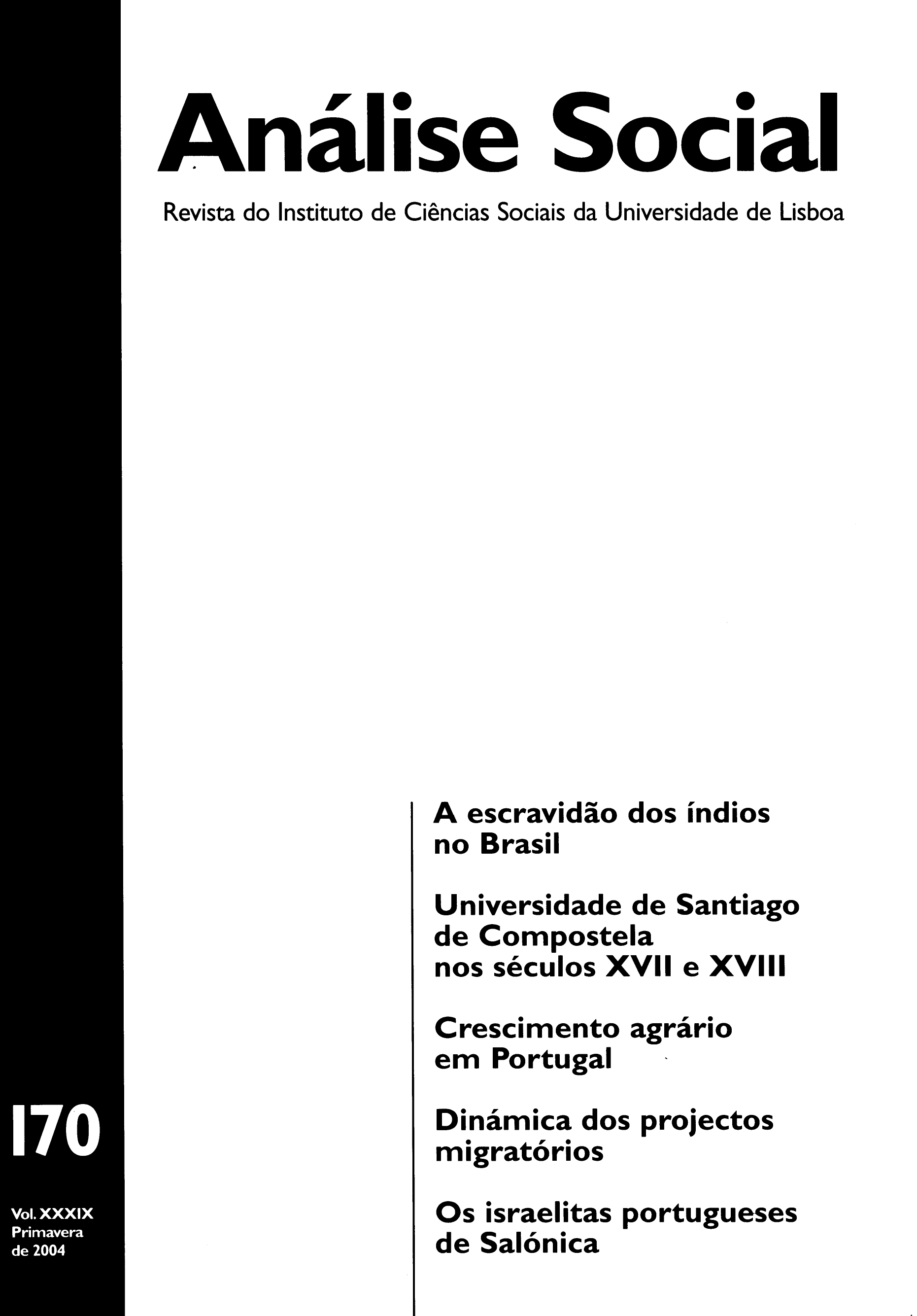A escravidão voluntária dos índios do Brasil e o pensamento político moderno
DOI:
https://doi.org/10.31447/AS00032573.2004170.01Palavras-chave:
escravidão voluntária dos tupi, Brasil, Luís de Molina, teologia moral tomistaResumo
Este artigo analisa a influência dos debates entre os missionários no Brasil acerca da escravidão voluntária dos tupi na elaboração da teologia moral de importantes autores da viragem para o século XVII, em particular o jesuíta Luís de Molina. As soluções hermenêuticas encontradas pelos missionários para aquele problema informaram a transição de um conceito objectivo de direito, utilizado por teólogos dominicanos, como Vitória e Soto, para um conceito subjectivo de direito, utilizado pelos seus sucessores na elaboração de uma teologia moral tomista, os jesuítas.
Downloads
Não há dados estatísticos.
Downloads
Publicado
2004-03-30
Como Citar
Eisenberg, J. . (2004). A escravidão voluntária dos índios do Brasil e o pensamento político moderno. Análise Social, 39(170), 7–35. https://doi.org/10.31447/AS00032573.2004170.01
Edição
Secção
Artigos




